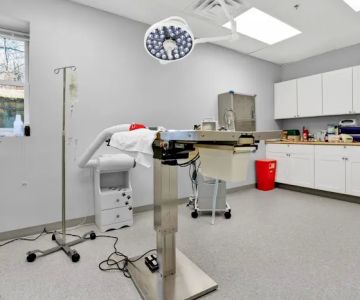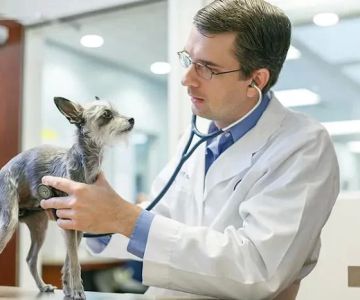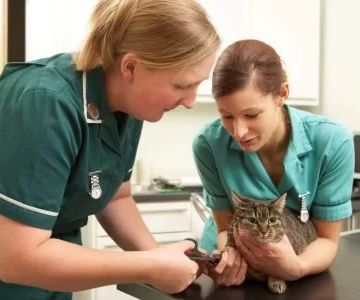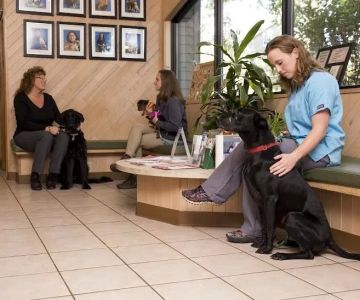- 1 - What Makes a Good Veterinary Receptionist: An Overview of Key Qualities
- 2 - Essential Skills and Attributes of a Successful Veterinary Receptionist
- 3 - How Good Receptionists Impact Patient Care and Client Satisfaction
- 4 - Real-Life Examples Showcasing Veterinary Receptionist Excellence
- 5 - Enhancing Your Veterinary Receptionist Skills with the Right Tools and Training
1. What Makes a Good Veterinary Receptionist: An Overview of Key Qualities
The role of a veterinary receptionist is the heartbeat of any successful vet clinic, often being the first and last point of contact for pet owners. Understanding what makes a good veterinary receptionist involves looking beyond just basic administrative tasks. It is about combining interpersonal skills, veterinary knowledge, and exceptional organizational abilities to create a welcoming, efficient environment for both clients and their beloved pets.
A good veterinary receptionist balances compassion and professionalism, knowing how to comfort worried pet owners while managing appointment schedules and billing with precision. This unique blend is vital because the front desk shapes the overall client experience and often influences a pet owner’s loyalty to the clinic.
The Role’s Complex Nature
Veterinary receptionists often juggle multiple tasks: answering calls, handling emergencies, coordinating with veterinarians, and maintaining records. Thus, understanding the nuances of what makes a good veterinary receptionist means appreciating this complexity and the skill set needed to manage it effectively.
2. Essential Skills and Attributes of a Successful Veterinary Receptionist
Exploring the essential skills and attributes reveals why some receptionists stand out and become invaluable team members.
1. Strong Communication Skills
Clear, empathetic communication is a cornerstone. Veterinary receptionists must translate technical information in understandable terms while remaining patient and calm, especially during stressful situations involving sick pets.
2. Organizational Excellence
Managing appointment calendars, patient records, and billing requires impeccable attention to detail. A skilled receptionist ensures the clinic runs smoothly, minimizing wait times and administrative errors.
3. Emotional Intelligence and Compassion
Pets are family to many clients. Understanding this emotional bond and responding with genuine empathy builds trust and helps ease client anxiety.
4. Veterinary Knowledge
While not veterinarians, receptionists benefit from familiarity with common terms, procedures, and emergency protocols. This knowledge enhances communication with both clients and veterinary staff.
3. How Good Receptionists Impact Patient Care and Client Satisfaction
The impact of a good veterinary receptionist reaches far beyond the front desk.
Facilitating Timely Care
Efficient appointment scheduling and prompt communication enable timely diagnosis and treatment, directly benefiting animal health outcomes.
Building Client Loyalty
Clients often remember how they were treated at the front desk as much as the care their pets received. Positive interactions encourage repeat visits and referrals, crucial for a thriving practice.
Example from Practice
At a busy urban veterinary clinic, their receptionist Jenna transformed client feedback scores by combining technical efficiency with a warm, personable approach. Pet owners reported feeling genuinely cared for, making the clinic a community favorite.
4. Real-Life Examples Showcasing Veterinary Receptionist Excellence
Stories from the field illustrate how exceptional receptionists go above and beyond.
Case of Crisis Management
During a recent local emergency when several pets were rushed in due to a toxic exposure, the vet receptionist coordinated incoming calls and directed owners calmly while alerting medical staff swiftly. This quick action ensured no time was wasted in critical care.
Going the Extra Mile
One receptionist developed personalized follow-up calls for worried pet owners, creating a supportive touchpoint that strengthened client relationships and boosted the clinic’s reputation.
5. Enhancing Your Veterinary Receptionist Skills with the Right Tools and Training
If you aspire to excel as a veterinary receptionist or want to hire the best, investing in professional training and reliable tools is key. There are excellent courses focusing on veterinary terminology, customer service, and clinic software management.
Additionally, adopting tailored practice management software can streamline appointment handling and record-keeping, allowing receptionists to focus more on client care.
For clinics looking to boost front desk efficiency and professionalism, exploring recommended training programs and innovative products is a smart step. By equipping your veterinary receptionist with the right resources, you not only improve daily operations but also enhance client satisfaction and pet care outcomes.
To explore quality products and training tailored for veterinary receptionists and front desk teams, start your search today and transform your clinic’s welcoming face.











